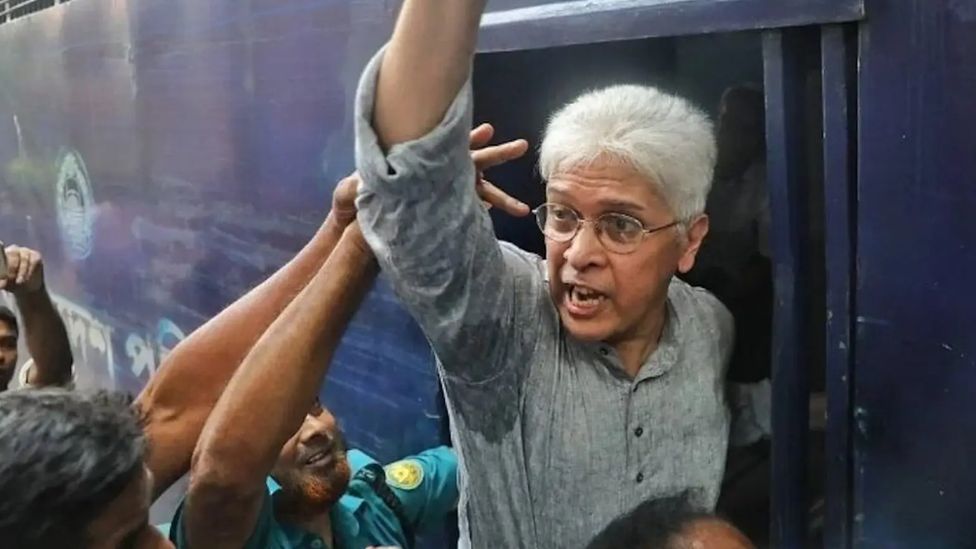-

-
-
Loading

Loading

Title: Prominent Human Rights Activists Sentenced to Jail in Bangladesh Introduction: In a move widely criticized as a crackdown ahead of elections, a court in Bangladesh has sentenced two prominent human rights activists to two years in jail. Adilur Rahman Khan and Nasiruddin Elan, members of rights group Odhikar, were convicted of charges related to a report they published in 2013. The report alleged security force killings during a protest and was deemed to have undermined the country's image. The sentencing has sparked international outcry, with many human rights groups calling for the immediate release of the activists. Details: Khan and Elan, who have spent decades documenting human rights abuses in Bangladesh, were accused of publishing a report containing false information. The report detailed security force killings, including the deaths of children, during an operation to remove protesters in Dhaka. The activists were initially detained after the report's publication but were later released on bail. The charges were re-ignited only recently, leading to their conviction. Prosecutor Nazrul Islam Shamim stated that the activists were sentenced for publishing and circulating false information, as well as hurting religious sentiments and undermining the state's image. However, international human rights groups have criticized the trial, stating that it lacked fairness and due process. The United Nations also highlighted the harassment and intimidation faced by the activists while on bail. Human Rights Watch noted that the prosecutorial action in this case did not begin until 2021, following US sanctions against Bangladesh's paramilitary force for their involvement in enforced disappearances and extrajudicial killings. The organization emphasized the delayed nature of the case, indicating a possible link to external pressure. Rights groups have raised concerns about the actions taken against Odhikar and its leaders. The government not only canceled the organization's operating license but also obstructed its ability to carry out its human rights work by blocking access to funds and delaying registration renewal since 2014. This interference has been criticized as an attempt to limit Odhikar's influence and hinder its important documentation and advocacy efforts. Conclusion: This latest development in Bangladesh, where two prominent human rights activists have been sentenced to jail, has sparked international condemnation. Criticisms have been directed towards the lack of fairness in their trial, harassment faced by the activists, and government interference in their organization's work. As Bangladesh approaches its next general election, calls for ensuring free and fair polls are growing louder, emphasizing the need to protect human rights and uphold democratic principles.